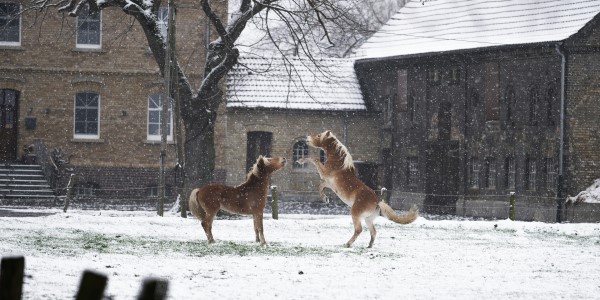Climate change is increasingly impacting the equestrian world in Colorado. It presents a range of challenges and adjustments for horse owners, trainers, and enthusiasts. As temperatures rise and weather patterns become more unpredictable, maintaining the health and well-being of horses has become more complex. Hotter summers and milder winters affect the availability and quality of forage. This makes it necessary for equestrians to adapt their feeding practices and seek out alternative sources of nutrition. Also, if you are looking for a horse property for sale in Colorado, contact Colorado Horse Property today and speak with one of our horse-person realtors.
Climate Change in The Equestrian World
The increased risk of extreme weather events, such as intense heatwaves and heavy storms, can disrupt training schedules. It also poses risks to both horses and facilities. The effects of climate change are also felt in the maintenance of equestrian facilities, particularly arenas and pastures. Extreme weather conditions can lead to erosion, flooding, and other damage that requires costly repairs and adjustments. The shifting climate necessitates more frequent updates and improvements to infrastructure, such as improved drainage systems and weather-resistant materials. Furthermore, the changing climate can influence the prevalence of pests and diseases. This potentially leads to higher veterinary costs and more frequent health issues for horses.
Despite these challenges, the Colorado equestrian community is demonstrating resilience and adaptability. Many horse owners and facilities are investing in sustainable practices, such as water conservation measures, renewable energy sources, and climate-resilient pasture management. By embracing these innovative approaches, the equestrian world in Colorado is working to mitigate the impacts of climate change and ensure a sustainable future for both horses and riders. Collaborative efforts and continued education are key to navigating the evolving landscape and preserving the joy of equestrian sports amid changing environmental conditions.

